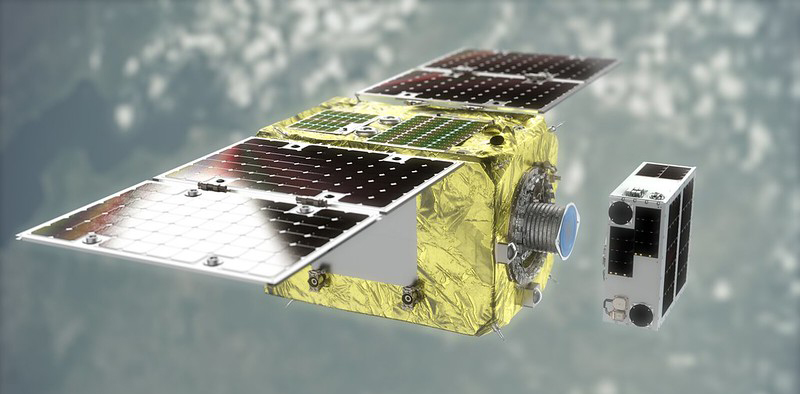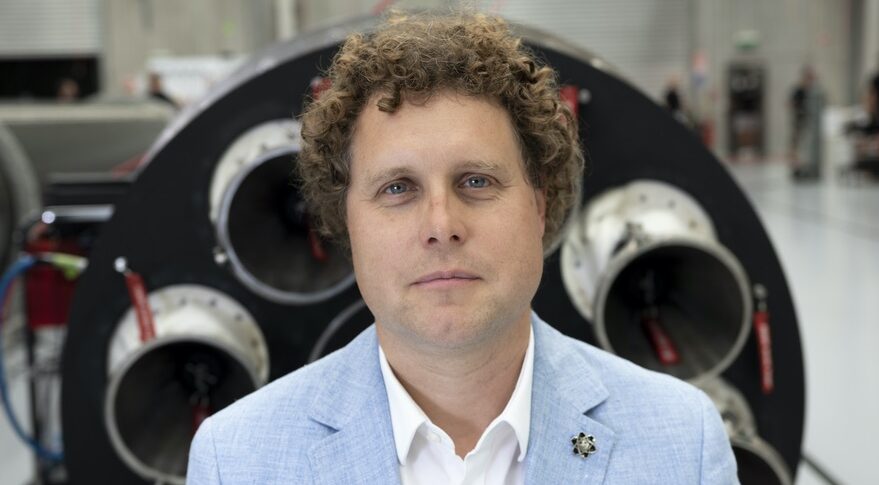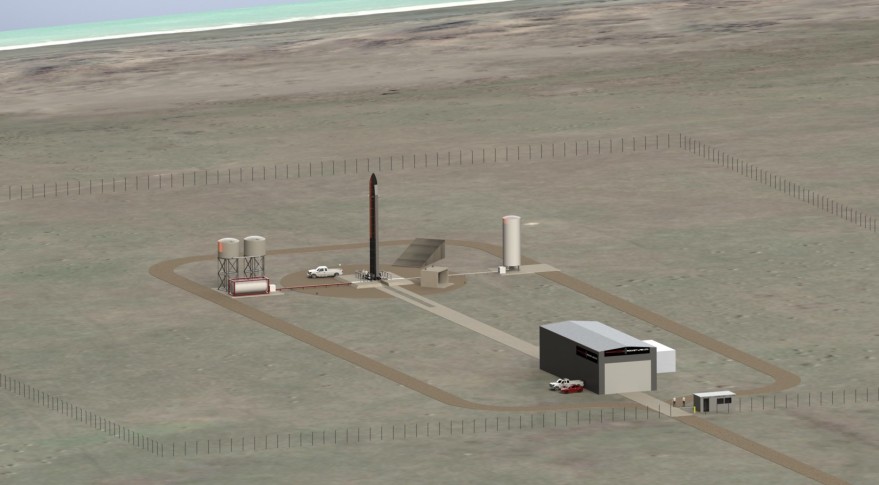RUAG Space provides GNSS-equipped computer for space debris removal
RUAG Space has provided its GNSS-equipped computer to command Astroscale UK‘s ELSA-M Servicer, a spacecraft designed to remove space debris.
Space debris is a growing concern for the space industry. End-of-life services by Astroscale (ELSA) — a spacecraft decommissioning service for satellite operators — will progress to a commercialization phase this year with the ELSA-M. The M stands for multi-client servicer.
The Astroscale ELSA-M spacecraft is designed to de-orbit multiple retired satellites in low Earth orbit, which will then burn up on atmospheric re-entry.

“The ELSA-M servicer will be optimized to remove multiple retired satellites from low-Earth orbit in a single mission,” said John Auburn, managing director of Astroscale UK and group chief commercial officer. The ELSA-M servicer is specifically designed for servicing constellation satellites, such as those launched by GNSS authorities or by the global satellite communications network OneWeb.
The computer from RUAG Space will include a GNSS receiver and interface unit. Based on RUAG Space’s constellation On Board Computer (cOBC), the computer controls the ELSA-M spacecraft, enabling repeated multi-debris removal maneuvers and management of equipment, reaction wheels and magnetometers linked to it. The cOBC is designed to be a flexible off-the-shelf computer with high integration and short lead time, enabling high-volume manufacturing.
The computer system developed in partnership with RUAG Space — with software from Astroscale and hardware from RUAG Space — will support the rendezvous between Astroscale’s servicer spacecraft and the client spacecraft, a retired or defunct satellite.
The GNSS receiver in the RUAG Space Computer is entirely from RUAG Space, including the NavRIX Integral antenna, which is integrated into the computer. The single-frequency GNSS receiver is capable of processing GPS and Galileo signals and offers several real-time positioning performance options ranging from 20-m 3D rms (root mean square) to better than 1-m 3D rms.
-
Latest
 Rocket Lab says SPAC deal will accelerate development of Neutron rocket
Rocket Lab says SPAC deal will accelerate development of Neutron rocketA growing realization of the need for a medium-class launch vehicle led Rocket Lab to speed up its plans to go public by merging with a special-purpose acquisition company (SPAC).Rocket Lab announced...
-
Next
 Rocket Lab Selects New Zealand Launch Site
Rocket Lab Selects New Zealand Launch SiteRocket Lab Ltd., a U.S.-New Zealand company developing a small launch vehicle, announced July 1 it will carry out initial launches of that rocket from a new site on the east coast of New Zealand.The c...
Popular Articles
- Semiconductor Technologies
- Netflix’s next interactive show is Headspace's Mindfulness Experience
- Learn American Sign Language with 21 highly rated courses
- Keystone Light becomes a must-have wearable device in summer
- Ford received a pre-order for 100,000 F-150 Lightning in three weeks
- HASC to scrutinize Space Force budget: Satellites have to be ‘easier to defend’
